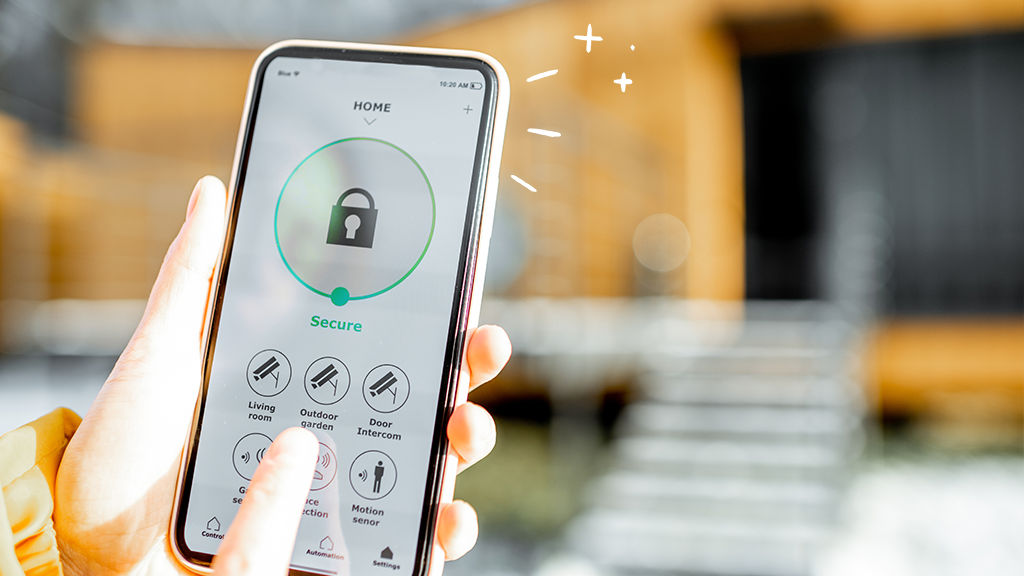Ten years ago, I would have discouraged homeowners or renters from attempting to install their own home security system. Now, with today’s technology, installing a quality home security system can be as easy as hanging a mirror on the wall.
Choosing the right system for your home is where things tend to get tricky. I have spent a lot of time traveling through the network of the World Wide Web, and I have found that there are many criminals posing as security companies. Jesse James used to rob people using a gun; today, many criminals use computers and auto-renewing contracts!
Contracts are a big part of most security companies. You, as the customer, really need to take the time to read this printed list of reasons why your alarm company does not have to provide you with reliable service, yet you still need to pay them every month for several years, whether your system works or not. You must also deliver them to repair the system if something goes wrong. Even when your equipment is under warranty, you have to pay them to come and make repairs or upgrades.

READ MORE :
- Home Security FAQ
- Top WordPress Plugins – Monetize Your Blog With Ads
- How to Find the Best Home Security Systems
- What Is an Operating System and What Does It Do?
- Installing the Chrome Operating System
Proprietary systems are another method many alarm companies use to force you to continue doing business with them. They will offer you a “free” security system; you only have to pay a small installation fee. Ok, they will give you a free security system valued at over eight hundred dollars, and you only have to pay ninety-nine dollars to install it. You have to pay overpriced monitoring charges for usually five years. Didn’t your mother ever teach you that nothing in life is free?
First of all, you are getting a system that is truly only valued at around four hundred dollars; it is usually proprietary equipment, so you cannot have it monitored or maintained by any company except the one that installed it, and you will end up paying for it within the first two years of monitoring. Yet, you continue to pay overpriced monitoring charges for the remaining three years of your initial contract. If you do not cancel your agreement in writing thirty days before it expires, it will auto-renew for “like consecutive terms,” meaning for another five years at the same or higher rate.
You can protect yourself from these tactics by installing your system, but there are a few things that you need to know. Programming a security system is something that even many technicians that I have met over the years have trouble with. That does not mean you cannot do it; it just means that you will need to take the time to understand your chosen system. You can get pre-programmed scenarios if you are uncomfortable programming it yourself.
Take care choosing the right system for your home or apartment. If your parents did not ever tell you this, I would say, “You get what you pay for!” If you decide to purchase the cheapest system you can find, that is what you will get. When choosing the right design for your home, consider the detection you need. You will want to protect your entry points, such as doors and windows, that can be accessed without needing a ladder. You will also want to consider interior detection, such as motion detectors; if you have pets, you must ensure that they are properly designed to reduce false alarms and placed properly to avoid making their “pet immunity” useless. There is more to a security system than just burglary; you may want to protect your home from other hazards such as smoke, heat, low temperature, carbon monoxide, and floods.
Monitoring capability is another feature that I believe is extremely important. You need to be able to have your system monitored by a professional monitoring company. A quality security system will be able to be monitored by virtually any professional monitoring station. If you think installing a “local” alarm is enough protection, you only fool yourself. When it comes to monitoring capability, you must consider how you will monitor it. If you do not have a standard phone line in your home, then a digital dialer won’t work properly for you. VOIP (Voice Over Internet Protocol) is not a “standard” phone line; if your phone does not work when the power is out, how will your security system communicate? One of the most reliable forms of communication would be GSM (Cellular); this is only if you live in a location with a reliable cellular signal (usually AT&T). Cellular communicators do not require a phone line; they will work when the power is out and cannot be disabled by cutting the phone lines. There are many other ways for security systems to communicate, but they are a little more involved, and I would not recommend trying them unless you are a trained professional.
In closing, I would like to say that not all alarm companies are bad. Reading some of this information may make it seem like I’m bashing security alarm companies. I am not. I own a security company; I have a different approach to the business than most. In the past, I have worked and dealt with some very reliable, high-quality security alarm companies. I hope this article helps you make the best choice for your family’s home protection.













